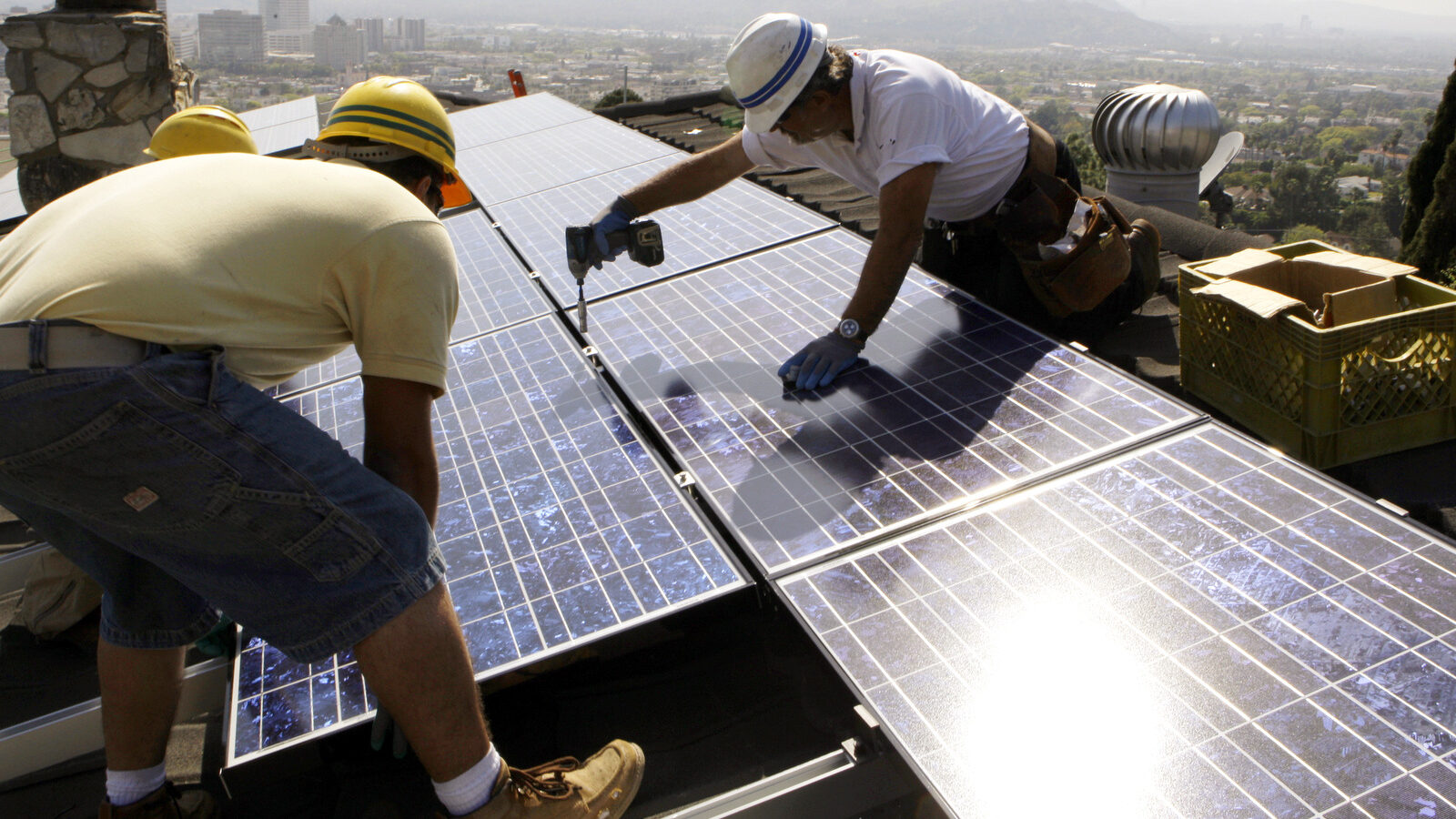Since President Donald Trump approved a “reckless” 30 percent tariff on imported panel materials in January, U.S. clean energy developers have shelved more than $2.5 billion in solar projects, moves that have cost thousands of American jobs, according to Reuters.
The first company to fall victim to the Trump-imposed tariff—which will decline by five percent annually over a four-year period—announced it would halt a planned $20 million expansion just days after the president signed off on the U.S. International Trade Commission proposal, but others quickly followed suit.
“Leading utility-scale developer Cypress Creek Renewables LLC said it had been forced to cancel or freeze $1.5 billion in projects—mostly in the Carolinas, Texas, and Colorado—because the tariff raised costs beyond the level where it could compete,” Reuters reports.
Those 150 or so stalled projects “would have employed three thousand or more workers during installation” and “accounted for a fifth of the company’s overall pipeline.” Southern Current has similarly slashed plans for $1 billion of projects.
Pine Gate, citing Trump’s tariff, “withdrew an 80-megawatt project that would have cost up to $150 million from consideration in a bidding process held by Southern Co. utility Georgia Power,” is only pursuing half of the 400 megawatts of solar installations it had planned 2018, and will no longer add 30 permanent employees.
The collective cost of just these three developers’ decisions, Reuters notes, works out to “more than double the about $1 billion in new spending plans announced by firms building or expanding U.S. solar panel factories to take advantage of the tax on imports.”
Government figures prior to Trump’s announcement revealed that the U.S. solar industry employs more people than coal, oil, and natural gas combined—but as Sunpower Corporation’s chief executive Tom Werner pointed out, “There could be substantially more employment without a tariff.”
Although SunPower bought the U.S. manufacturer SolarWorld’s Oregon factory and saved its 280 jobs after the tariff announcement, the company said it also has to fire 250 people in other roles because of the president’s move.
Ultimately, Reuters concludes, “Trump’s tariff has boosted the domestic manufacturing sector as intended, which over time could significantly raise U.S. panel production and reduce prices.”
However, as Martin Pochtaruk, president of Heliene—which is opening a U.S. facility that will employ up to 140 workers—explained: “The factories are highly automated. You don’t employ too many humans.”
The report comes amid growing concerns about automation and the climate crisis, which bolster calls for a total transition to renewable energy. The Trump administration, meanwhile, recently revealed it is working on plans to give failing coal and nuclear facilities—which can’t compete with cheaper, cleaner energy—a taxpayer-funder bailout.
Well, here goes the fast growing solar industry now stifled by the tariffs of the Trump administration. Absurd that we are trying to grow the coal industry and kill alternative energy. https://t.co/pPLKgurWUj
— Colleen Kirtland (@PurposeCreator) June 7, 2018
Top Photo | Workers from California Green Design install solar electrical panels on the roof of a home in Glendale, Calif. California. (AP/Reed Saxon, File)
![]() Common Dreams is licensed under a Creative Commons Attribution-NonCommercial-ShareAlike 3.0 International License.
Common Dreams is licensed under a Creative Commons Attribution-NonCommercial-ShareAlike 3.0 International License.


